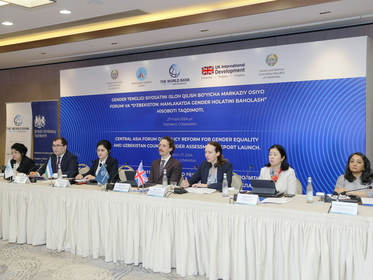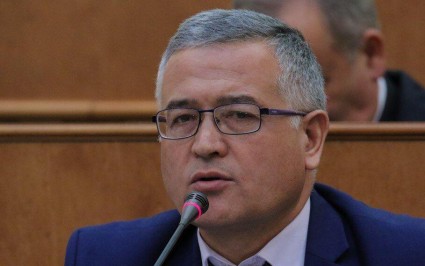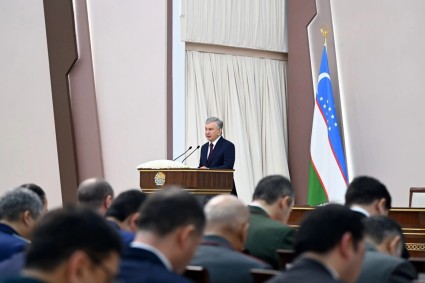The World Bank, in collaboration with the Senate of Oliy Majlis, the Committee for Family and Women's Affairs, the Development Strategy Center, and the UK Foreign, Commonwealth, and Development Office (FCDO), presented key findings and recommendations of the Uzbekistan Country Gender Assessment Report.
The event brought together officials from the Parliament and the Government of Uzbekistan, representatives of civil society, and the private sector. Discussions centered on challenges and opportunities for women’s empowerment in Uzbekistan.
Ms. Malika Kadirkhanova, Chairwoman of the Committee for Women and Gender Equality Affairs at the Senate of Oliy Majlis; Ms. Ozoda Parpiboyeva, Chairwoman of the Committee for Family and Women; Mr. David Knight, Lead Country Economist at the World Bank Office for Uzbekistan; and Ms. Sarah Cooper, Development Director for Central Asia at the UK FCDO welcomed the event participants.
Officials from the Senate of Oliy Majlis and the Ministry of Employment and Poverty Reduction emphasized the political, legal, and institutional measures being undertaken by the authorities to promote gender equality and women's empowerment in Uzbekistan.
This includes the progress achieved by the country over the past several years in enhancing women’s labor rights, such as the implementation of the equal pay principle and improved access to professions in certain industries as outlined in the Labor Code adopted in October 2022. Additionally, significant strides have been made with the adoption of legislation aimed at protecting women from domestic violence, which now includes provisions for criminal penalties for such offenses.
The country's advancements in these areas were recognized by the World Bank in its Women, Business and the Law Report (WBL) released in March 2024, which evaluates gender equality across 190 countries. Uzbekistan was distinguished among 18 economies for implementing the above-mentioned legal reforms enhancing women’s rights. As a result of these actions, the country has attained a position among the top five reformers named in the WBL, reflecting substantial improvements made since October 2022.
During the event, the World Bank experts presented key findings and recommendations of the Uzbekistan Country Gender Assessment Report (CGA), which will be available on the Bank’s website soon. The study was produced with the financial support of the UK Government. Such reports serve as diagnostic tools used to evaluate the state of gender equality in a specific country. They analyze data and identify key challenges and opportunities to promote equal rights and opportunities for women and men.
The Uzbekistan CGA focuses on core areas of gender equality, including education, health, economic activity and opportunity, protection from gender-based violence, marriage and divorce issues, and participation in public life. Additionally, the report considers social norms and expectations, assessing cultural attitudes and practices influencing women’s rights and perceptions in Uzbekistan.
For example, the CGA revealed that Uzbekistan’s gross national income could increase by approximately 29 percent if women participated in the economy on an equal footing with men. This potential for growth holds the power to lift over 700,000 people out of poverty.
World Bank experts highlighted that while the country is implementing substantial policy reforms to promote gender equality, effective implementation remains a challenge. The study shows that gender disparities persist across various spheres, including the labor market, social norms, and gender-based violence. Addressing these issues requires a comprehensive and coordinated approach involving the state and society, encompassing further legal reforms, institutional strengthening, awareness-raising, and more.
The event concluded with a discussion on measures aimed at reducing unemployment among women in Uzbekistan, enhancing their entrepreneurial skills, and expanding access to education. Representatives from various sectors, including the Institute of Forecasting and Macroeconomic Research, a civil society organization, a businesswomen association, and TEAM University in Tashkent, shared their experiences in achieving these goals. The participants touched upon the issues of the partnership between the state and civil society in this endeavor.















